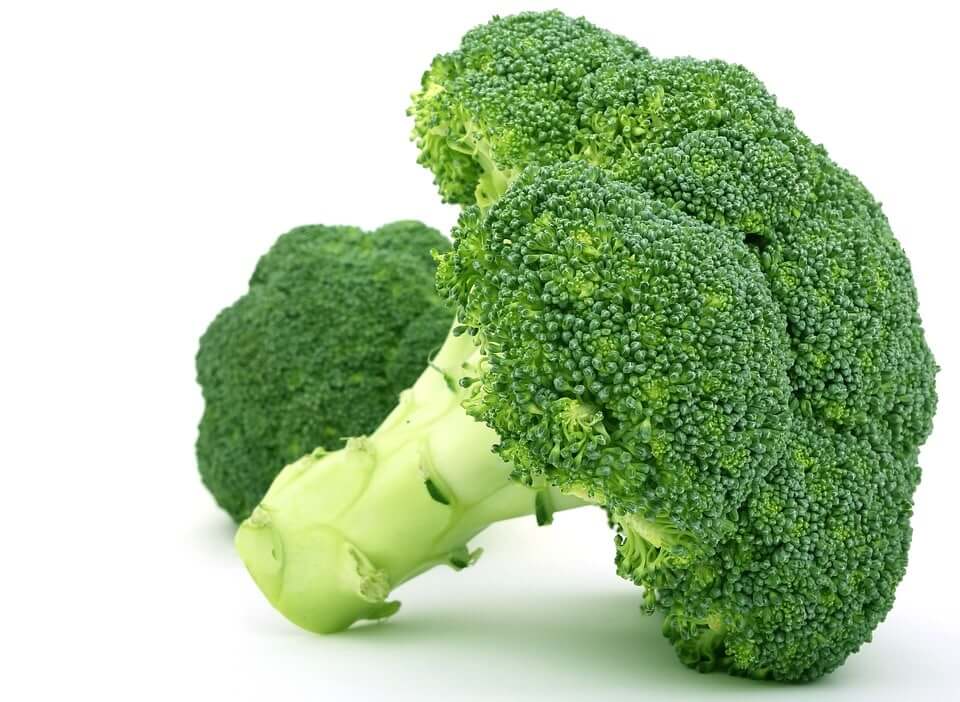Sulforaphane -- Why Your Mom Was Right When She Said "Eat Your Broccoli, It's Good For You."
Posted by TEAM PURE NOOTROPICS

By: Paul Wilson
Most people who take Nootropics are looking for a short-term boost in memory or focus. In fact, the bulk of Nootropic users are students and executives, people who are cramming an abundance of information, and need to retain that information long-term; or simply they are just working gruelingly hours and must remain mentally on top of their game.
However, nootropics can also be used long term for neuro-protective value with few short term effects. Neuro-protectants are substances that protect brain cells from damage and neuron loss that could cause a variety of brain disorders.
The most widely known cognitive issue is memory problems which affects 10% of American's over the age of 65. The CDC released a Morbidity and Mortality Report in 2014 with data showing that death rates for memory problems increased 55% from 1999 to 2014.
In prevention of such neuro-degenerative issues, there's been a growing interest in many natural neuro-protectants, one of those being a compound commonly found in cruciferous vegetables.
Sulforaphane is substance present in broccoli, broccoli sprouts, cabbage, cauliflower, brussel sprouts and kale. It protects brain cells. It is classified as a compound and while it's simple in composition its effects on the human body are only now beginning to be understood.
The first widely known indication of the properties of Sulforaphane being observed and used was by Cato the Elder (234 - 149 BC). He was a Roman statesman who wrote passages relating to the medicines and treatments that were practiced in his day. He referenced the compound, stating: "it (cabbage) will cleanse suppurating wounds and tumors, and heal them, a thing which no other medicine can do. But before it is applied, the surface should be washed with plenty of warm water, and then the crushed cabbage should be applied as a poultice, and renewed twice a day."
While many of these have been in mice and some in vitro (in test tubes, culture dishes or elsewhere outside a living organism) a large number have already been conducted in humans and the results have been extremely exciting.
As you read through medical studies you will constantly encounter references to its ability to activate powerful anti-inflammatory, antioxidant capabilities within the body. Slow down and read that sentence again.
Unlike many supplements that we take that "are" antioxidants like Vitamin C and E, Sulforaphane activates mechanisms in your body to produce antioxidants. Why is this significant?
Without going into a long discussion, oxidation stress is the root of inflammation and inflammation is the cause of a multitude of chronic illnesses.
Antioxidants were recognized as agents whose use could reduce oxidation stress. While supplementing with antioxidants is seen as useful, the half life of most of the substances taken for this is relatively short measured in hours and in the case of vitamin C just 30 minutes.
Sulforaphane on the other hand, while not a direct antioxidant does, in fact, activate mechanisms in the body to produce antioxidants. This activation can last for days.
At this point, you may be wondering how to increase your Sulforaphane intake. In addition to increasing the foods that contain Sulforaphane to your diet, you may also want to consider growing and eating broccoli sprouts. Why sprouts? Scientists found that broccoli sprouts contained 10-100 times the amount of sulforaphane that the mature plants did.
Sprouts simple to grow and are ready to eat on average after just 5 days. They don't require the space and time that a garden would plus they can be grown with a very inexpensive setup.
Order the seeds and sprouting jars today off of a reputable website and within a week you could be eating your first harvest!
Far more can be said about Sulforaphane - I encourage and suggest that you will take time to do more research and find ways to include this vital substance in your own diet. The threat of cognitive decline alone was enough for me to admit that mom was right when she said: "eat your broccoli, it's good for you."

